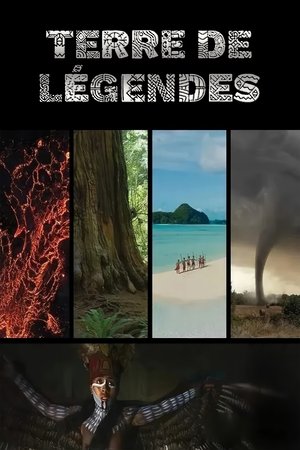
The Canary Islands(2023)
Overview
Loading episode ratings...
This may take a moment for shows with many seasons.

Season 1
5 episodes • 2023Avg: 7.6

Season 1
5 episodes • 2023Avg: 7.6
| # | Episode | Air Date | Rating |
|---|---|---|---|
| 1 | Episode 1 | May 17, 2023 | 7.0 |
| 2 | Episode 2 | May 24, 2023 | 8.0 |
| 3 | Episode 3 | May 31, 2023 | 8.0 |
| 4 | Episode 4 | Jun 7, 2023 | 8.0 |
| 5 | Episode 5 | Jun 14, 2023 | 7.0 |
Related Shows

Kingdom of the White Wolf
2019Ronan Donovan, our expert guide and National Geographic photographer, takes the audience on an intimate exploration of the Arctic during the endless day of the summer months, giving insight to the unexpected abundance of the 'Garden of the Arctic' in Wolf Valley as he attempts to embed with a wolf family pack.

The Yorkshire Auction House
2021Observational documentary series following auctioneer Angus Ashworth and his staff throughout the process from house viewings to auction day as they travel around the UK looking for antiques and collectables to sell.

The Bond
2022An intimate look at the unique bond between animals and humans, spotlighting these relationships in its purest forms and telling the remarkable, moving, and surprising stories of men, women, and children bonding deeply with animals that we might think of as wild.

Galapagos 3D with David Attenborough
2013David Attenborough uses pioneering 3D-techniques and technology to explore the unique environments and species of the Galapagos.

How to Grow a Planet
2012Geologist Iain Stewart explain in three stages of natural history the crucial interaction of our very planet's physiology and its unique wildlife. Biological evolution is largely driven bu adaptation to conditions such as climate, soil and irrigation, but biotopes were also shaped by wildlife changing earth's surface and climate significantly, even disregarding human activity.

Search for Second Earth
2018Search for Second Earth brings to life, in breathtaking CGI, an epic future journey that our species has already begun: the voyage of an autonomous spacecraft to a planet beyond our Solar System in search of life. Join NASA planetary explorers Gentry Lee and Steve Squyres; and exo-planet hunters Sara Seager, Francois Forget and Natalie Batalha on their quest to find life beyond Earth.

Mutual of Omaha's Wild Kingdom Protecting the Wild
2023Showcasing wildlife success stories across the United States, renowned wildlife experts explore the work of conservationists helping to save imperiled species.

Die Arktis - 66,5 Grad Nord
2023No description available.

The Great Canadian Wilderness
2006Explore the raw beauty and awesome natural power of the Great Canadian Wilderness - the largest untouched wilderness in the world.

Terre de légendes
2024No description available.

Kingdom of Plants
2012Sir David discovers a microscopic world that’s invisible to the naked eye, where insects feed and breed, where flowers fluoresce and where plants communicate with each other and with animals using scent and sound.

Larry and George Lamb Turkey A to B
2017No description available.

Pole to Pole
1992Michael Palin undertakes an epic journey of 23,000 miles, traveling from the North to the South Pole across 17 countries with a minimum of air travel, all on a tight deadline.

Planet Earth
2006David Attenborough celebrates the amazing variety of the natural world in this epic documentary series, filmed over four years across 64 different countries.

Meerkat Manor: Rise of the Dynasty
2021Continuing the compelling saga of the heartstring-tugging, dramatic tale of survival revolving around three families of meerkats who are descendants of the legendary meerkat matriarch, Flower. Neighbors and rivals who share a bloodline are forced to compete for food and resources in an environment that is undergoing a great deal of change: the Kalahari Desert in South Africa.

See It Now
1951See It Now is an American newsmagazine and documentary series broadcast by CBS from 1951 to 1958. It was created by Edward R. Murrow and Fred W. Friendly, Murrow being the host of the show. From 1952 to 1957, See It Now won four Emmy Awards and was nominated three other times. It also won a 1952 Peabody Award, which cited its

Kingdom of the Oceans
2011A four-part documentary series on ocean life around the world.

Wild Canada
2014The four-part series takes an awe-inspiring look at the world around us, shot with ultra-high-definition cameras that capture sweeping panoramas and extraordinary close-ups of Canada’s majestic terrain and diverse species.

Concorde: The Race for Supersonic
2023The true story of the battle to build the world's first supersonic airliner. A tale of genius, Cold War espionage, and an whole new kind of jet plane.

Nature's Miracle Orphans
2014The first months of an animal's life are crucial - if they lose their mothers, they'll need help. Meet the wild orphans getting a second chance, and those devoted to saving them.